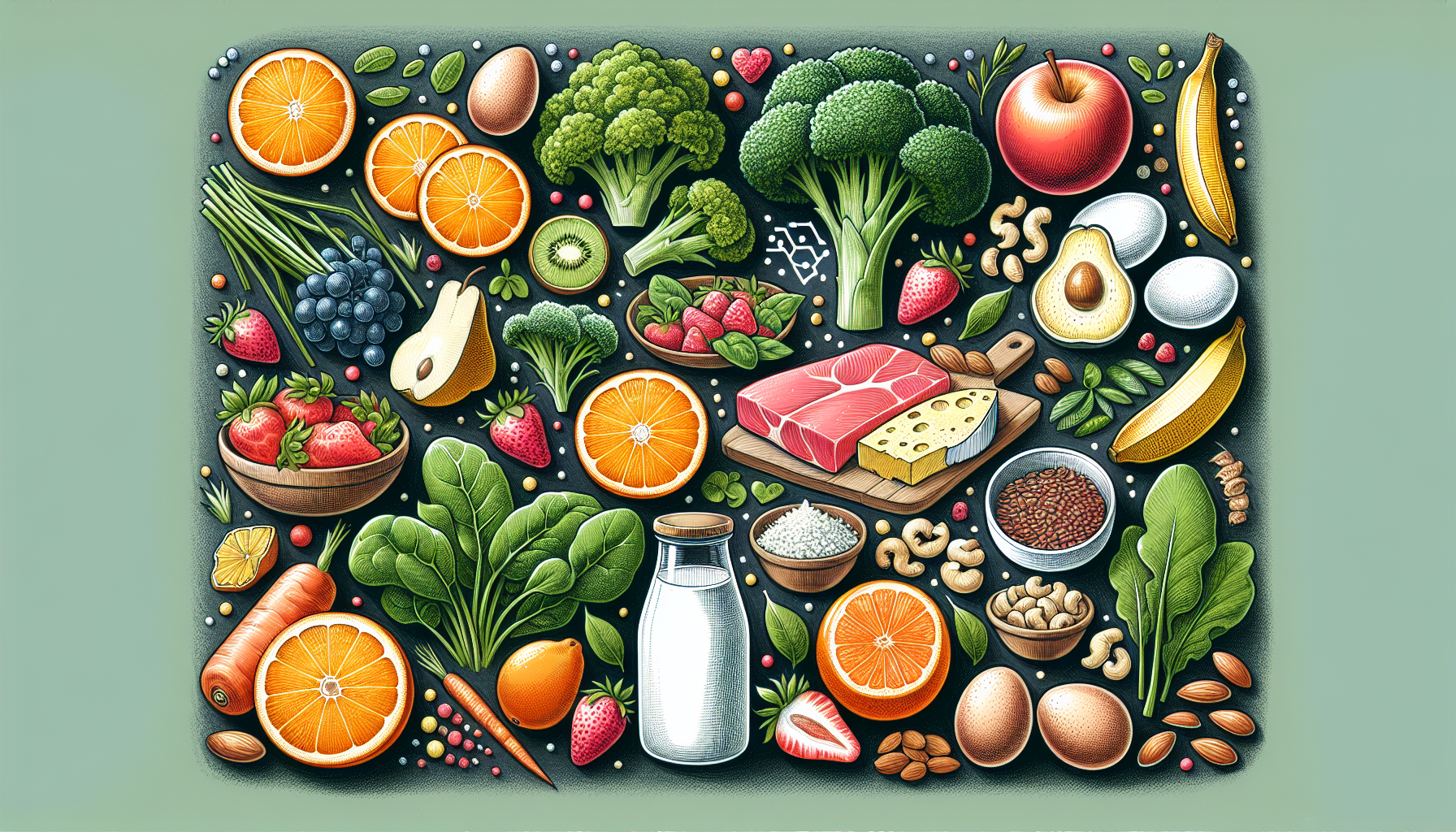Our skeletal system is the foundation upon which our bodies are built. It provides structure, protects vital organs, and enables movement. As such, maintaining bone health is crucial for leading a vibrant and active life. What many may not realize is the significant role diet plays in the health of our bones. This article will delve into the fascinating link between diet and bone health, highlighting key nutrients, lifestyle choices, and practical tips to foster a robust skeletal structure.
Essential Nutrients for Bone Health
Bones are living tissues that constantly break down and rebuild. To support this process, our bodies require a variety of nutrients.
Calcium: The Cornerstone of Bone Health
Calcium is the most abundant mineral in the body and is critical for bone structure and strength. Dairy products, leafy greens, and fortified foods are rich sources of calcium, but it’s essential to balance intake with other nutrients for optimal absorption.
Vitamin D: The Sunshine Vitamin
Vitamin D plays a pivotal role in calcium absorption. Without sufficient vitamin D, our bodies cannot absorb the calcium we consume, regardless of the amount. Sources include sunlight exposure, fatty fish, and fortified foods.
Magnesium, Phosphorus, and Potassium
Magnesium contributes to the bone mineral matrix, phosphorus is a key component of bone mineralization, and potassium neutralizes bone-depleting metabolic acids. Nuts, beans, and bananas are excellent sources of these minerals.
Protein: The Building Block of Life
Protein is crucial for bone structure and repair. However, high-protein diets can increase calcium excretion if not balanced with calcium-rich foods.
Micronutrients: The Unsung Heroes
Micronutrients like Vitamin K, Zinc, and Boron also support bone health. Leafy greens, meat, and fruits provide these essential micronutrients.
Ensure your diet is balanced and rich in these nutrients for optimal bone health. For a comprehensive guide on the importance of balanced nutrition for bone health, visit Avix Health’s Bone Health page.
The Impact of Diet on Bone Density and Strength
Bone density tests are crucial in assessing bone health, especially as we age. A diet lacking in essential nutrients can lead to lower bone density and increased risk of fractures. For more information on understanding bone density tests, consider reading Understanding Bone Density Tests.
How Diet Affects Postmenopausal Women
Postmenopausal women are at a higher risk of developing osteoporosis due to hormonal changes. A diet rich in calcium and vitamin D, along with lifestyle modifications, is vital. For further details, explore Bone Health for Postmenopausal Women.
Lifestyle Choices and Their Consequences
Smoking and excessive alcohol consumption can detrimentally impact bone health. Smoking interferes with calcium absorption, while alcohol can lead to bone mass loss. For deeper insights, review The Effects of Smoking on Bone Health and Alcohol Consumption and Bone Health.
Supplements: Are They Necessary?
Supplements can play a role in maintaining bone health, especially if dietary intake is insufficient. It’s important to choose the right supplements and avoid those that offer no proven benefits. To understand which supplements are effective, read Bone Health Supplements: What Works?.
External Resources for In-Depth Knowledge
While this article provides a solid foundation on the link between diet and bone health, further reading can expand your knowledge:
- Explore the National Osteoporosis Foundation for resources on nutrition and bone health.
- The International Osteoporosis Foundation offers extensive information on how diet affects your bones.
- For practical dietary advice, the Academy of Nutrition and Dietetics provides tips on the best foods for bone health.
- Research published in the Journal of Clinical Endocrinology & Metabolism can offer scientific insights into endocrine health and its impact on bones.
Strategies for Recovery from Bone Injuries
Diet also plays a role in recovering from bone injuries. A balanced intake of essential nutrients can expedite the healing process. For strategies on recovering from bone injuries, visit Strategies for Recovering from Bone Injuries.
Conclusion
Bone health is intricately linked to diet. By ensuring a balanced intake of essential nutrients, such as calcium, vitamin D, and protein, and adopting healthy lifestyle choices, we can maintain and improve our bone health. It’s crucial to stay informed and proactive about our dietary choices, as they have the power to shape our skeletal wellness throughout our lives. Whether through natural food sources or supplements, a commitment to bone health is a commitment to a strong and resilient body.



